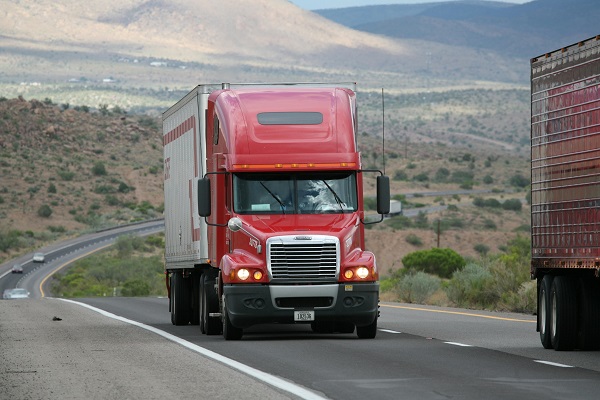The Easter holiday season is upon us yet again and this presents both opportunities and challenges for logistics businesses. With national roads experiencing an increase in volumes of traffic during peak season, drivers must prioritise safety, while still maintaining efficiency and cost-effectiveness.
Statistics reveal the pressing need for enhanced road safety measures, particularly during holiday seasons.
Road Freight Association (RFA) CEO Gavin Kelly notes that issues with the rail system, including inadequate capacity, have also resulted in logistics companies moving rail-friendly freight to trucks. “The collapse of rail services is a driver in the demand for more road freight – purely because there is no alternative for land freight.”
The increase in the number of trucks on the roads has contributed significantly to road accidents.
In 2022, 77% of all light motor vehicle crashes on the N3 and 85% of all truck crashes on the N3 were attributed to human error. In the same period, trucks were involved in 57.3% of all crashes on the N3 toll route. Furthermore, a study by the Road Traffic Management Corporation (RTMC) showed that heavy load vehicles with a gross vehicle mass above 3,500 kilograms account for 9.4% of all fatal crashes on South African roads, while they make up just 3.3% of the vehicles recorded on our roads.
Factors contributing to these accidents include driver fatigue, vehicle maintenance issues, and adverse weather conditions. Addressing these challenges demands proactive measures and innovative solutions aimed at promoting safer driving practices and reducing accident rates.
As an advocate for safer roads, Michelin shares tips for both fleet owners and long distance truck drivers on how adequately prepare for peak season with safety in mind.
“Peak holiday seasons can mean safer roads as well as efficiency and cost-effectiveness for road freight businesses – it’s all about implementing the right solutions with the right partner,” says Charl Lensley, B2B Director at Michelin.
Before making any trips, truck drivers should do their pre-trip inspection to ensure that there are no visible problems on the truck. One of these includes making sure that tyres are correctly inflated and not damaged, wheel nuts are tight, that the wheels are not damaged – they do not have cuts or bulges in the sidewalls and that there is adequate tread depth. This is vitally important as tyres are the only contact the truck has with the road.
When it comes to driver behaviour, fleet operators can rely on the latest fleet management services and solutions to assist drivers on their long trips. An advanced fleet management solution should include driving behaviour tools that help drivers be proactive and make the correct decisions on the road – these include adhering to speed limits, reducing harsh braking and utilizing in-cab cameras to identify driver fatigue.
Shivani Pillay, country manager at MICHELIN Connected Fleet, emphasizes, "A majority of accidents on South African roads are still caused by human error, but thanks to the use of smart technologies, we can support truck drivers and fleet operators in playing their role to create safer roads in the country.
Smart camera solutions can help identify potential hazards such as unsafe following distances, road infringements like not wearing seatbelt or using a cellphone while driving. Drivers and fleet operators can receive immediate alerts to correct these incorrect behaviours."
Moreover, advanced fleet management solutions, allow fleet operators to leverage their mobility data to gain valuable insights – offering insights into vehicle performance, maintenance needs on the tyre, and optimized route planning, further supporting drivers in their journey towards safer and more efficient transportation.
Proactive measures, informed decision-making, and a commitment to sustainability pave the way for cost savings and more importantly, safer roads for all.

.jpg)


